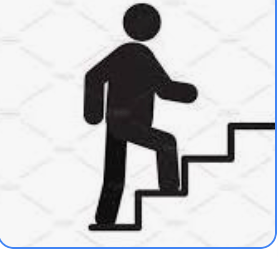Parshas Bereishis
Eretz Yisroel Belongs To Us!
“In the beginning Hashem created the heavens and the earth.” (Bereishis 1:1)
In Netzivin, just north of Eretz Yisroel was a great yeshiva headed by the tanna, Rabbi Yehudah ben Besaira. Rabbi Elazar ben Shamua and Rabbi Yochanan Hasandler were two sages who lived in Eretz Yisroel. They decided to travel to Netzivim to learn Torah from Rabbi Yehudah ben Besaira, who had been alive when the Bais HaMikdash was still standing. They traveled for many days until they arrived in Tziddon. They turned back to see Eretz Yisroel, once again, for they did not know when they would return. They began to cry and tore their clothes in sorrow for having to leave Eretz Yisroel. They thought of a pasuk in the Torah and said, “Dwelling in Eretz Yisrael is over and against all the mitzvoth in the Torah”. At that point, they decided not to continue to Netzivin but to return home and continue learning in Eretz Yisroel. (Sifri Re’eh 80:5)
Rashi, quoting a Midrash, asks, why did the Torah begin, with the story of Creation? Wouldn’t it have made more sense to start by listing the first mitzvah that the Jewish People were given, namely “This month shall be unto you the first of the months” (Exodus 12:2)? The Midrash answers that Hashem wanted to give the Jewish People the answer to future protests which would be raised by the other nations. Other nations may call us robbers for forcefully taking Eretz Yisroel (the Land of Israel) from the Canaanite nations. The Jews would be able to answer, “All the earth belongs to Hashem. Hashem created it and gave it to whom He pleased… He took it from them and gave it to us.”
It is interesting to note that many commentaries question this Midrash. Rav Ovadia miBartanura, Chizkuni, and others ask, how could we possibly be accused of being robbers? Firstly, the land initially belonged to the children of Shem, from whom the Jews are descended. Canaan conquered it from them (see Rashi Bereishis 12:6). If anything, the Caananites should be considered the “robbers”. Also, Noach made Canaan a servant of Shem. The Talmud tells us that whatever belongs to the slave automatically belongs to his master. Thus, even if the land did “seem to belong” to Canaan, it really belonged to his master, Shem. The commentaries answer these questions.
So, the Torah began in a way that legitimizes the Jews’ ownership of the Land of Israel. What did that accomplish? That has NOT stopped the nations from protesting that we have no legitimate claim to it.
We can understand this based on Rabbi Mordechai Gifter zt”l’s explanation of a Mishna in Pirkei Avos. “Rabbi Elazar said, …and know how to answer an apikores (Avos 2-14). Rav Ovadia miBartenura says that an apikores is one who disgraces the Torah. Rabbeinu Yona says that an apikores is one who denies the validity of the oral Torah. Rabbi Mordechai Gifter zt”l says that the knowledge of what to answer the apikores is NOT for the purpose of explaining it to the apikores. Rather it is for our own understanding. We must be educated sufficiently so as not to be influenced by the corrosive arguments and ridicule of the apikores. We must remain strong in our beliefs, without feeling any bit of doubt about our legitimacy of having Eretz Yisroel.
Thus, the Torah first tells us that Hashem is the Creator and that He gave us Eretz Yisroel. It was not so that we can respond to others that we are not stealing the land. Rather, it is for our own edification and knowledge. We should feel secure in our belief that Eretz Yisroel belongs to us. This is also alluded to in Tehillim (111:6), “He told His people of the power of His deeds in order to give them the heritage of nations”. Radak explains that before the Jews conquered the 7 powerful nations of Caanan, Hashem made it known that His strength and might would “help” them. Rashi connects this pasuk to the first pasuk in Bereishis. “He wrote for Israel [about] the Creation to let them know that the earth is His and that it is in His power to settle in it anyone He wishes, and to move these out and settle others, so that the nations will not be able to say to Israel, ‘You are thieves, for you conquered the land of the seven nations.’”
Rabbi Gifter zt”l points out that the pasuk says that Hashem told His People of the power of His deeds. Hashem did not tell the other nations, whose land was taken and given to the Jews.
Eretz Yisroel is our heritage, given to us by Hashem, Himself, the Owner of the world!
We should not feel otherwise.
We should not permit anyone to make us feel that we stole the land from others.
(dvar Torah based on Talelei Oros by Rabbi Yissachar Dov Rubin)












